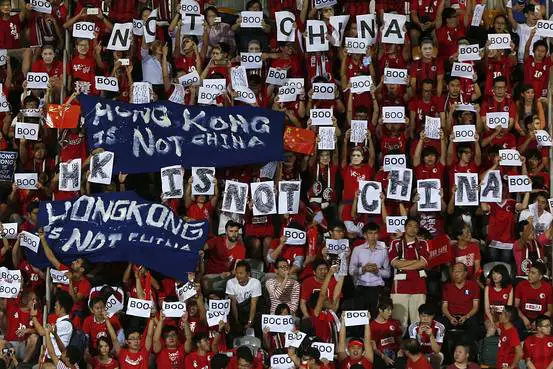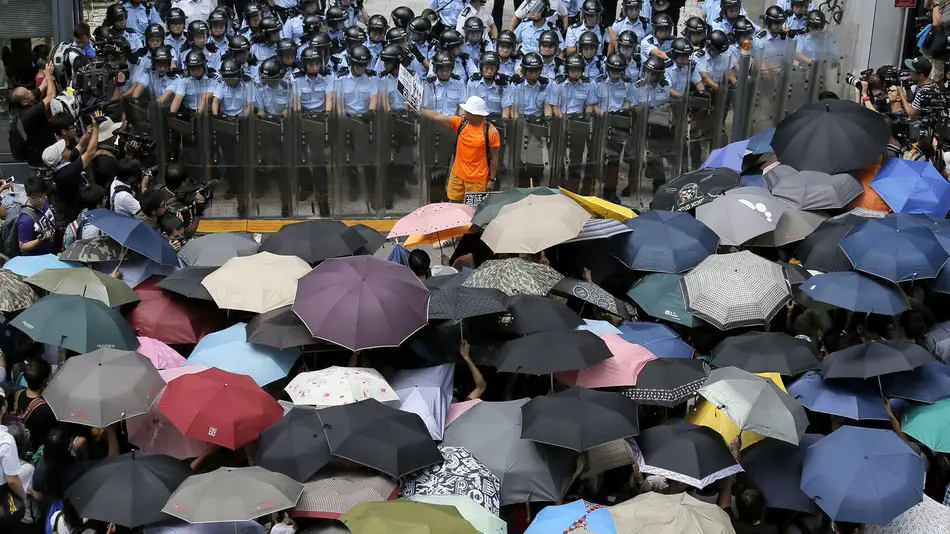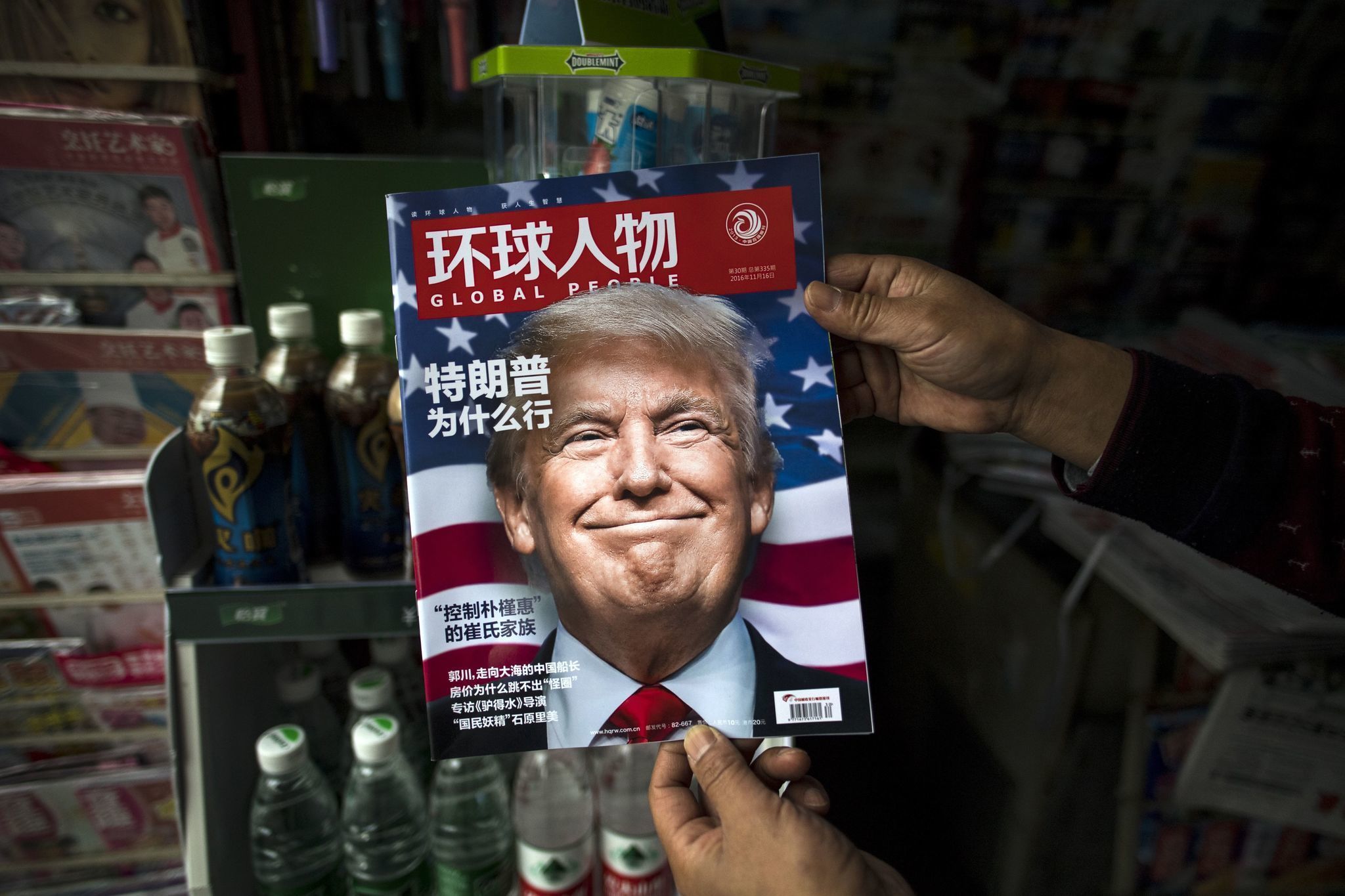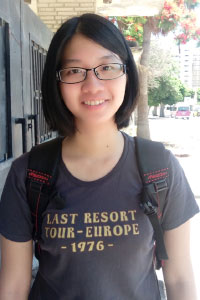Identity Politics in Southeast Asia
With political tensions taut, a Trump presidency may well destabilize an already-delicate coexistence.
By Jessie Yang, University of Hong Kong
Back in December 2016, then-president-elect Donald Trump set a U.S. diplomatic precedent with China and Taiwan by taking a congratulatory call from the Taiwanese president, Tsai Ing-wen.
In doing so, Trump made the headlines, as the U.S. and Taiwan had not spoken directly for several decades, and Trump’s call challenged that silence.
In addition to Taiwan, Hong Kong experienced a similar political dilemma when its citizens criticized the former chief executive, Leung Chun-ying, of “licking Communism,” a term netizens use to describe politicians who have affiliations with China.

The relationship between China, Taiwan and Hong Kong is a complex web of statesmanship, one in which reconciliation is out of reach without understanding. Both Taiwan and Hong Kong share an animosity for the Communist state, but global politics have rendered their opinions second-class. As the U.S. heads into a Trump presidency, and Taiwan and Hong Kong continue to speak against their Chinese oppression, the politics of Southeast Asia enter into an unprecedented arena of delicate tension.
Taiwan and Its Unresolved Political Dilemma
As a Taiwanese studying in Hong Kong, there were times when people mistakenly thought I was from China. When I started to explain, words seem to be stuck in my throat, as it was hard to explain the complex relationship between China and Taiwan. Instead, I responded that although both regions had similar cultural roots, nascent political developments have made Taiwan significantly different from China. Taiwanese identity has also changed throughout decades, moving from nostalgia to localism.
Looking back to almost seven decades ago, when the major political party of the time, Kuomintang, retreated to Taiwan in 1949, following their defeat to the Chinese Communist Party in the civil war, tension between the two parties arose when both asserted that they were the legitimate regimes.
The U.S. initially took Taiwan’s side, offering military and economic support during the Korean and Cold War to prevent the expansion of Communism. However, the U.S. later turned to the Beijing government to solidify a formal diplomatic relationship and implement the One China policy. The One China policy doesn’t specifically prohibit contact between U.S and Taiwanese leaders, but American leaders have been acting as if it did in order to avoid upsetting Beijing.
After seven decades of separation, the Taiwanese have come to recognize Taiwan as their motherland and appreciate its distinct local culture, while at the same time accepting its former colonization at the hands of the Dutch, Japanese and Chinese. Unlike China, Taiwan is the first democratic political entity in Asia, and made history by electing the first female president in Asia.
Although Taiwan is not recognized as an independent country, it has formal government and legislative structures with a long practice of democracy—very different than China.
However, most countries still regard Taiwan as an “orphan” in global politics, because, due to pressure from China, an economic powerhouse with significant sociopolitical sway, they refuse to recognize the country’s sovereignty. Caught up in the turmoil between history and political suppression, Taiwan has yet to feel comfortable in its national identity.
The Unheard Voice of Hong Kong
Once a colony of England, Hong Kong stands in a unique political situation. When the British handed it over to China in 1997 through a mutual agreement, the fate of Hong Kong was uncertain, in part because the country had never been able to speak for itself.
The operating structure the two states agreed upon, known as the “one country two systems” policy, allows Hong Kong to enjoy certain democratic freedoms without tight control by Chinese government, though recently citizens of the island nation have had reason to fear an accelerating trend toward communist rule.
The country’s antipathy toward the Chinese government is more than political; the citizens of Hong Kong have grown unhappy watching their home being transformed into a place they do not recognize. In many ways, their fears stem from the inevitable watering-down of cultural identity that occurs in a globalized economy. As a merchant city in the intersection of international economics, Hong Kong is slowly losing its individuality, and more and more, increasing numbers of Chinese people fill its streets and universities.
In addition, for many Hong Kongers, their spoken language, Cantonese, is what separates them from Chinese people, who speak Mandarin. However, their linguistic separation is changing as well. With more and more Chinese in Hong Kong, Mandarin is slowly taking over Cantonese, threatening Hong Kong’s last lingering hope of protecting their culture.
Listening as the Only Solution
During 2014, two major civil protests took place in Taiwan and Hong Kong, the sunflower and umbrella movements.
Taiwanese students occupied the country’s legislative council to protest the passage of the Cross-Strait Service Trade Agreement, a policy they claimed was insufficiently disclosed to the public. And in Hong Kong, protestors calling for universal suffrage disrupted major business areas with their month-long occupation.

Though both conflicts eventually wore down, tension from their political defiance still lingers in both countries, especially in regard to their relations with China.
During my time in Hong Kong, there were times when shopkeepers or waiters were rude to me because they assumed I came from China from the Mandarin that I spoke. Even in university, my classmates’ attitudes changed from indifference to delight when they figured out I was from Taiwan instead of China.
When people displace anger that is directed at the government of a country toward the people of a country, it squelches any chance of communication. Though Taiwanese and Hong Kongers are just now learning to talk about their identities without fear, they also must listen.
So, when foreigners ask me where I come from, I still feel a frustrated. I find it hard to transform my emotions into words properly, but I have begun to understand that identity is not a definition, but a process, one in which I learn to accept differences.
I remember talking to a Chinese friend of mine about politics, and she said she didn’t agree me about my views toward Taiwan as a country, because it contradicted what she believed.
“But,” she shrugged, “you are my friend.”











Why doesn’t China create a Chinese Commonwealth and apply this to Taiwan? That way it has its own right to be a self governed, its own identity, and other legal aspects in which to peaceful means to be sovereign? This can also be applied to Hong Kong and Macau, in which the power is back to its own people and its own system, give it time to matriculate and progress with care, no way subordinate one to another in any aspect of their domestic or external affairs, though united by a common allegiance to the CCP and freely associate as members of the International stage, the dominions were recognized as separate states, entitled to have separate representation in other world organisations, to appoint their own ambassadors, and to conclude their own treaties. This might bring the best effort to win the will of the people and show the world stage that China has humanity and to govern peacefully.